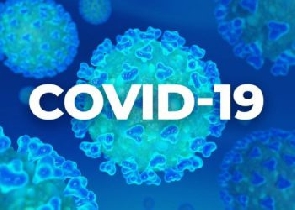The Ministry of Health has launched a national document to guide vaccination against COVID-19 and other vaccine-preventable diseases across the country.
The document, among other things, explains the purpose, service goals and objectives, regulatory, human resource, premises and storage requirements, as well as standard operating procedures for vaccination.
Mr Kwaku Agyeman-Manu, the Minister of Health, in an address read for him, said despite the gains made in bringing the COVID-19 pandemic under control, there were still some challenges hampering the national response.
He cited the vaccine hesitancy among the populace as a major challenge, and urged all persons who had not yet gone for their jabs to do so immediately, warning that “the pandemic is still not over”.
The Health Minister said as of December 09, 2022, Ghana had administered a total of 21,400,539 doses of the COVID-19 vaccines with about 28.9 per cent of the entire population being fully vaccinated, but that figure fell short of the WHO recommended 70 per cent target for achieving herd immunity against COVID-19.
Mr Agyeman-Manu acknowledged the key role of community pharmacies in meeting global health challenges in the 21st Century and said in Ghana their number and distribution as the first point of call for most people seeking healthcare could be leveraged for promoting public health initiatives.
The “Guidelines for Vaccination Against COVID-19 and other vaccine-preventable diseases in Community Pharmacies,” published in June 2022, would provide guidance to suitably trained Community Pharmacist Vaccinators (CPVs), to enhance the accessibility of the services in communities.
He said presently, about 700 community pharmacists had undergone immunisation training to be enrolled unto the Ghana National COVID-19 Vaccination Programme and other programmes against vaccine-preventable diseases.
Dr Vera Asante, a Member of the Technical Working Group, gave key highlights on the Guidelines, and what it sought to do, saying the strength and expertise of pharmacy partners was being leveraged to rapidly attain herd immunity through vaccination.
The accredited community pharmacies would be required to input vaccination data into the District Health Information Management System version two (DHIMS2) and any other database as approved by the Ministry and GHS, she added.
In terms of the regulatory requirements, all participating CPVs must have valid registration and accreditation with the relevant national and statutory institutions before they provided the service, and also ensure that only vaccines and other devices licensed for use by the Food and Drugs Authority (FDA) were administered, she said.
Dr Asante said the document also required strengthened collaboration with the relevant statutory regulatory bodies to ensure strict adherence to standards and policies according to their legal mandate, while participating pharmacies ensured that they were accredited by the FDA as Patient Safety Centres.
She said all participating CPVs must undergo orientation by the GHS Expanded Programme on Immunisation (EPI), and ensure strict adherence to vaccines ultra-clod chain storage facilities as approved by the MoH-GHS and the regulator.
Again, participating CPVs shall request for COVID-19 vaccines from the district or sub-district in-charges and same must account for, as shall be arranged with their District Health Directorates (DHD) with approval from the Regional Director of Health Services.
Dr Asante said CPVs ought to demonstrate evidence of involvement in annual immunisation programmes and also have the requisite continuous professional development points in vaccination.
Health News of Saturday, 24 December 2022
Source: GNA

















